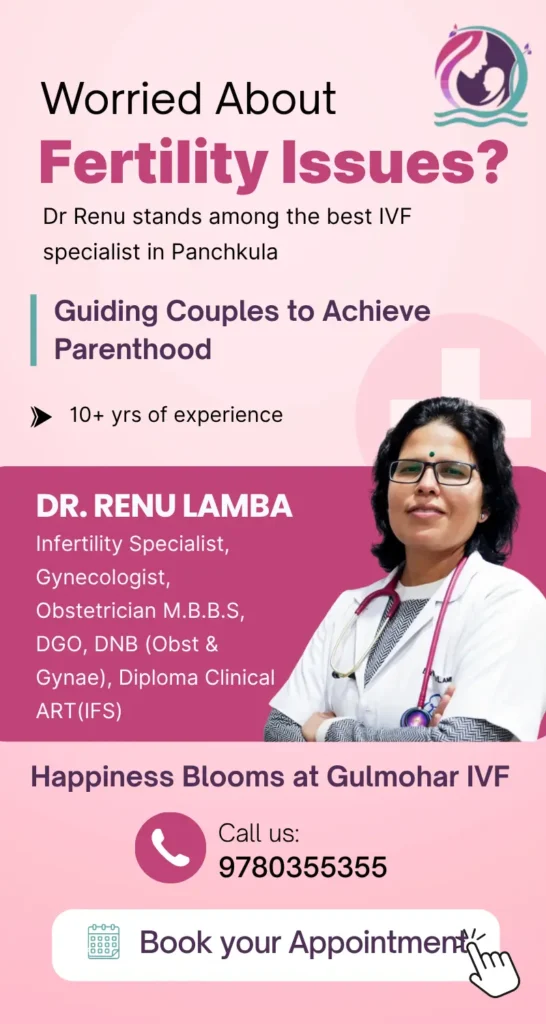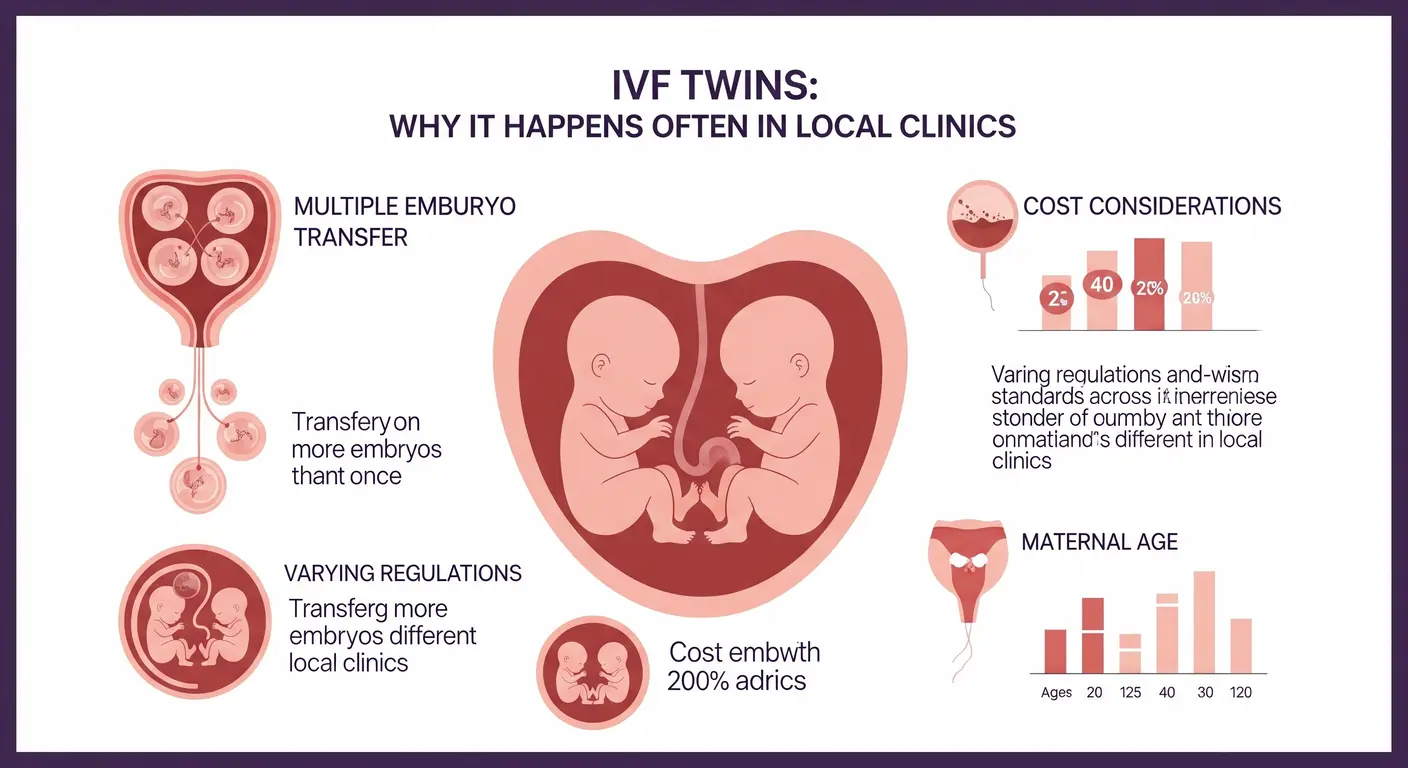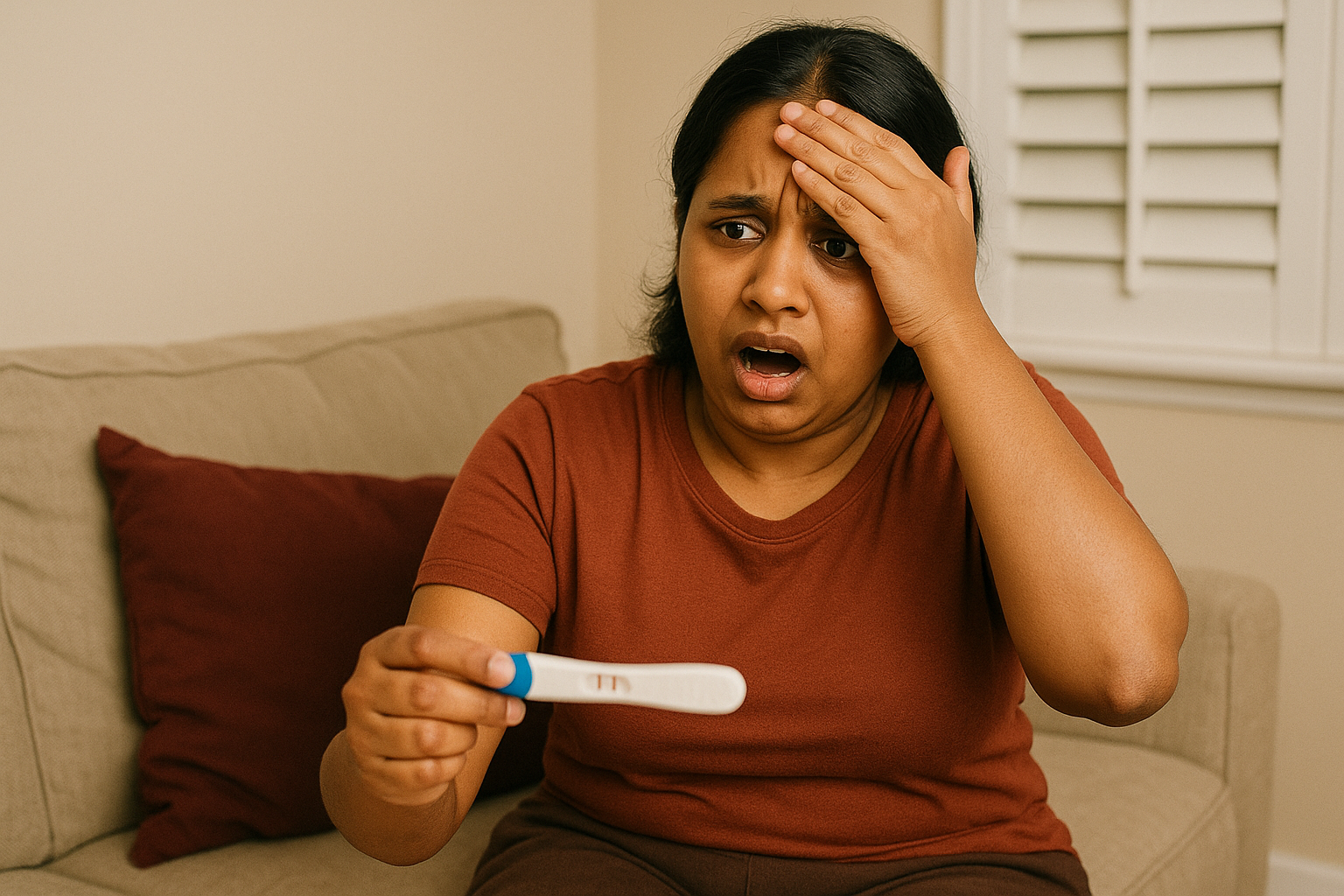Infertility is a growing concern, affecting millions of couples worldwide. It is medically defined as the inability to conceive after 12 months of regular, unprotected intercourse for women under 35, or after 6 months for women over 35. Both men and women can face fertility challenges, making it essential to understand the causes, risk factors, and treatment options.
At Gulmohar IVF & Fertility Centre in Panchkula, under the expertise of Dr. Renu Lamba, we provide personalized fertility solutions tailored to each couple’s unique needs. Let’s explore the key causes and available treatments for male and female infertility.
Causes of Male Infertility
Male infertility is primarily linked to sperm production, function, or delivery issues. Several factors can impact male fertility:
1. Low Sperm Count (Oligospermia)
A low concentration of sperm in semen reduces the chances of fertilization.
Causes: Hormonal imbalances, varicocele (swollen testicular veins), obesity, smoking, excessive alcohol consumption, and certain medications.
2. Poor Sperm Motility (Asthenozoospermia)
Sperm must move efficiently to reach the egg. Poor movement lowers the chance of conception.
Causes: Infections, testicular damage, prolonged heat exposure, or underlying medical conditions.
3. Abnormal Sperm Morphology (Teratozoospermia)
Irregularly shaped sperm may struggle to penetrate the egg.
Causes: Genetic factors, exposure to environmental toxins, smoking, or an unhealthy lifestyle. Cleveland Clinic
4. Ejaculation Disorders
Retrograde ejaculation occurs when semen enters the bladder instead of exiting through the penis.
Causes: Diabetes, spinal injuries, prostate surgeries, or medication side effects.
5. Hormonal Imbalances
Low testosterone levels or conditions like hypogonadism affect sperm production.
Causes: Thyroid disorders, pituitary gland dysfunction, chronic stress, or obesity.
6. Blockages in the Reproductive Tract
Any obstruction in the sperm transport pathway can lead to infertility.
Causes: Infections, previous surgeries, congenital defects, or varicocele.
For a comprehensive evaluation and personalized treatment options, consider our Male Infertility Treatments.
Causes of Female Infertility
Female infertility is often linked to ovulation disorders, fallopian tube blockages, or uterine conditions. Let’s explore the most common causes:
1. Ovulation Disorders
If ovulation does not occur regularly, conception becomes difficult.
Common Conditions:
- Polycystic Ovary Syndrome (PCOS): A major cause of infertility due to hormonal imbalance, insulin resistance, and irregular cycles. Mayo Clinic
- Premature Ovarian Failure (POF): Early depletion of ovarian reserve before age 40. Diagnosed through FSH and AMH testing.
- Thyroid Disorders: Affect ovulation and menstrual cycles.
2. Fallopian Tube Blockage
Blocked or damaged fallopian tubes prevent sperm from meeting the egg.
Causes: Pelvic inflammatory disease (PID), endometriosis, past surgeries, or infections. nhs.uk
3. Endometriosis
A condition where endometrial-like tissue implants outside the uterus, leading to inflammation, scarring, and infertility.
Symptoms: Painful periods, pelvic pain, and irregular cycles.
4. Uterine & Cervical Abnormalities
- Uterine conditions: Fibroids, polyps, or congenital abnormalities can affect embryo implantation.
- Cervical mucus issues: Can prevent sperm from reaching the egg.
5. Age-Related Infertility
Female fertility declines significantly after 35 due to reduced egg quality and quantity.
6. Lifestyle & Environmental Factors
Smoking, excessive alcohol consumption, stress, obesity, poor nutrition, and high caffeine intake can negatively impact fertility.
For detailed information and treatment options, visit our Female Infertility Treatments page.
6. Lifestyle & Environmental Factors
Smoking, excessive alcohol consumption, stress, obesity, poor nutrition, and high caffeine intake can negatively impact fertility.
For detailed information and treatment options, visit our Female Infertility Treatments page.
Solutions: Male & Female Infertility Treatments
Thanks to advanced infertility treatments in Panchkula, many couples can successfully conceive. At Gulmohar IVF & Fertility Centre, we offer a range of solutions:
1. Lifestyle Changes & Natural Remedies (continued)
- Manage stress: Engage in yoga, meditation, or therapy to reduce cortisol levels, which may interfere with reproductive hormones.
- Eat a fertility-friendly diet: Include leafy greens, whole grains, lean proteins, omega-3s, and folic acid-rich foods.
Learn more about how we support holistic fertility with our Fertility Enhancing Support Services.
2. Medications for Infertility
- Ovulation Induction (Women): Medications like Clomiphene Citrate and Letrozole stimulate ovulation.
- Hormone Therapy (Both Genders): Corrects hormonal imbalances impacting ovulation or sperm production.
- Antibiotics (Men): Treats reproductive tract infections that may be compromising sperm quality.
3. Assisted Reproductive Technologies (ART)
At Gulmohar IVF, we offer advanced ART options, tailored to individual fertility challenges:
A. Intrauterine Insemination (IUI)
Process: Sperm is washed and inserted directly into the uterus during ovulation to enhance chances of fertilization.
Best For: Mild male infertility, cervical factor infertility, or unexplained infertility.
B. In Vitro Fertilization (IVF)
Process: Eggs and sperm are fertilized in a lab; a healthy embryo is transferred to the uterus.
Ideal For: Blocked fallopian tubes, advanced maternal age, PCOS, or severe male infertility.
Success Rate: Around 40–50% for women under 35, according to CDC fertility data.
C. Intracytoplasmic Sperm Injection (ICSI)
Process: A single sperm is injected directly into an egg to facilitate fertilization.
Recommended For: Low sperm count or morphology issues.
D. Donor Eggs & Sperm
Best For: Women with poor ovarian reserve or men with non-viable sperm.
E. Surrogacy
Suitable When: A woman is medically unable to carry a pregnancy to term.
Frequently Asked Questions (FAQs)
1. Can infertility be completely cured?
It depends on the cause. Some cases are reversible with medication or surgery. Others may require advanced ART like IVF or ICSI.
2. When should couples seek medical help?
- Women under 35: After 12 months of unprotected intercourse
- Women over 35: After 6 months
3. Does male age impact fertility?
Yes. Although men produce sperm throughout life, quality declines after 40, increasing miscarriage risk and lowering success rates (NIH).
4. What is the IVF success rate at Gulmohar IVF?
Our IVF success rates are comparable to international benchmarks—about 40–50% for women under 35. Results depend on age, egg and sperm quality, and underlying conditions.
5. Is stress a significant factor in infertility?
Absolutely. Chronic stress affects hormone levels and ovulation and may also impact sperm quality. We incorporate stress management guidance in all our care plans.
Conclusion & Next Steps
Infertility can be emotionally exhausting—but hope is real. With accurate diagnosis, lifestyle changes, and access to advanced fertility treatments, most couples can fulfill their dream of parenthood.
At Gulmohar IVF & Fertility Centre in Panchkula, Dr. Renu Lamba and her expert team offer compassionate, customized care—from diagnostics to advanced ART procedures like IVF, ICSI, and IUI.
📍 Take the First Step Toward Parenthood
Whether you’re just starting to explore your fertility or you’ve been trying for years, we’re here for you.
👉 Book Your Consultation Now
📞 Call Us: 91 9780 355 355
🌐 Visit: www.gulmoharivf.com
🔒 Disclaimer
This article is for informational purposes only and does not replace professional medical advice. For diagnosis and treatment, consult a qualified fertility specialist.










